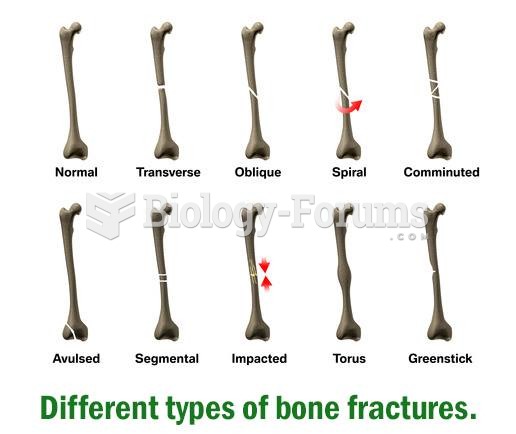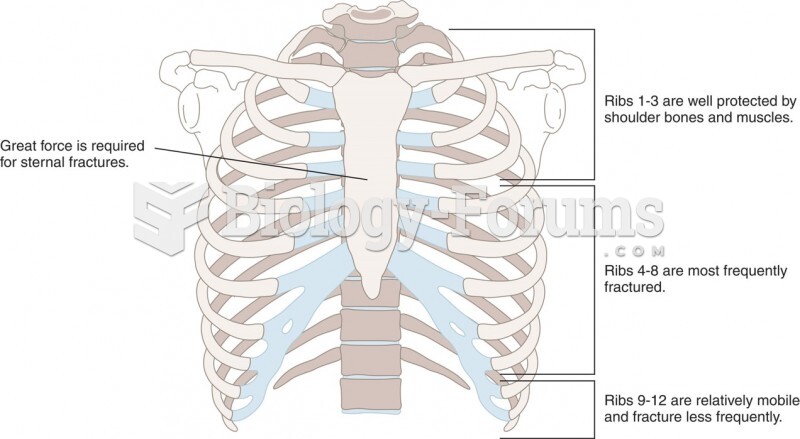|
|
|
The types of cancer that alpha interferons are used to treat include hairy cell leukemia, melanoma, follicular non-Hodgkin's lymphoma, and AIDS-related Kaposi's sarcoma.
Excessive alcohol use costs the country approximately $235 billion every year.
Anti-aging claims should not ever be believed. There is no supplement, medication, or any other substance that has been proven to slow or stop the aging process.
Before a vaccine is licensed in the USA, the Food and Drug Administration (FDA) reviews it for safety and effectiveness. The CDC then reviews all studies again, as well as the American Academy of Pediatrics and the American Academy of Family Physicians. Every lot of vaccine is tested before administration to the public, and the FDA regularly inspects vaccine manufacturers' facilities.
Thyroid conditions cause a higher risk of fibromyalgia and chronic fatigue syndrome.
 A mother dies, a father loses his leg—such calamities shattered poor urban families. Orphaned street
A mother dies, a father loses his leg—such calamities shattered poor urban families. Orphaned street
 After adjusting the valves that are closed, rotate the engine one full rotation until the engine ...
After adjusting the valves that are closed, rotate the engine one full rotation until the engine ...





